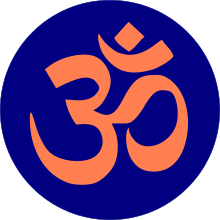Find Every thing About When Hinduism Was Founded
For this reason, till day, no you have had the opportunity to find out the actual year or time of source with this religion.
The other major problem to find the inception with this culture is that there’s not one founder of Hinduism. For instance, Christianity was launched by Jesus Christ, Buddhism was founded by Master Buddha but exactly the same is incorrect for Hinduism. While there is nobody founder, even the living of the religion can’t be connected with the start of his founder. Due to the above-stated details, it is very difficult to discover the source of Hinduism, but nonetheless you can find few historical bits of evidence available, that have been ready to discover the estimated period for the living of this practice.
It will be correct to mention that contemporary Hinduism is mainly on the basis of the Vedas. But you will find several practices and traditions practiced by the Hindus, which resemble the Neolithic people of India. As per the traditional evidence, the Neolithic era survived for approximately 4000 B.C. Methods like burying or cremation of the dead bodies were followed closely by the Neolithic people. As well as this, there are other frequent methods between the Hindus and Neolithic people, like stone praise, animal compromise, phallus praise, ancestral worship, and more. So based on these details, it can be concluded that the origin of Hinduism continues to be not known, but it’s believed to be an integral part of or used from the Neolithic lifestyle of the Indian society.
Hinduism is more than an external faith of certain rituals and formalities. Hinduism is in fact a life-style; a religious code. That religious signal or Dharma is in the centre of Hinduism and governs the moral and spiritual techniques of its believers. Through the practise of Yoga proscribed in Hindu scripture adherents can seek to attain union with God. As Sri Chinmoy creates: “Know Thyself.” This is what Hinduism stands for. This is actually the quintessence of Hinduism”
Along with stressing the necessity for self-discovery, yet another notable feature of Hinduism is its tolerance. That is threshold of different religions, different cultures and different religious paths. Undoubtedly specific fanatics have dismissed that aspect, but the heart of Hinduism is significant for the inclusivity and oneness. “Unity in Diversity” is their goal. Hinduism as a religion is probably unique in not stressing the necessity for conversion. The Great Rishis and Saints provide the sublime truth that many would be the trails to the goal. Sri Chinmoy states shakti:
Along with enjoying the spiritual wisdom of other countries, there’s also great selection within Hinduism itself. Different offices of Hinduism may attract individuals of various temperaments. For example in bhakti yoga the seeker meditates and concentrates on his selected deity (Be it Sri Krishna or Maha Kali), emotion they’re nearing God through the personal facet of God. Another course of Hinduism, largely the philosophy of Vedanta, challenges the Impersonal facet of God and leads the adherent to see beyond the region of subject or “maya “.Another confusion to outsiders could be the multiplicity of Gods and Goddesses within Hinduism, however the Hindu scriptures show they are but the different aspects and manifestations of the One Great God who embodies both finite and unlimited and at the same time frame transcends both. Hinduism fortunately holds these diverse paths.